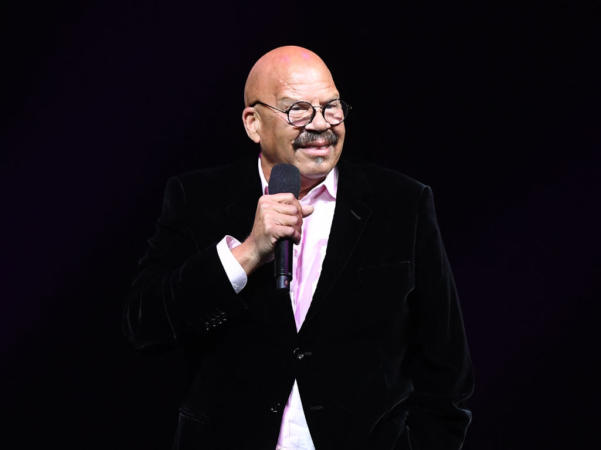Tom Joyner, the host of the show that bears his name, put down his microphone Friday. After 25 years on-air, the veteran radio host of the “The Tom Joyner Morning Show” began his retirement from a job he never imagined leaving.
In a recent CBS News interview conducted by Jericka Duncan, the Alabama native described his auspicious start at a local radio station. After protesting that the station failed to play Black music, despite being situated in an all-Black community, the station owner relented. Joyner took the mic, and he never looked back.
In 1994, he began hosting “The Tom Joyner Morning Show” on ABC Radio Networks with a focus on empowerment. Setting that unique tone paved the way for transparency on the program, giving rise to discussions about real-life topics, such as voter advocacy and health awareness, peppered with humor and social commentary. His direct, down-to-earth approach is associated with galvanizing Blacks to vote. Ten years later, with a greater following, the show transferred to Radio One (now Urban One), the largest Black-owned broadcasting company in the United States. With greater momentum came a higher salary, leading Joyner to reach an audience of 8 million daily, and to receive $14 million annually, at the height of his earnings.
However, in an era of podcasts, YouTube, TED talks, streaming platforms, and more, traditional radio took a backseat, and Joyner witnessed several salary cuts. A changed landscape emerged, with digital audio front and center, a point that Joyner acknowledges in his conversation with Duncan.
“But it got to a point where they would – ‘All right, we’re gonna cut your salary in half.’ ‘Okay.’ ‘And then in half.’ ‘Okay.’ And then in half two years ago,” Joyner said. “Because my salary was based on my results, and not only was I losing affiliates but radio industry as a whole was losing traction,” Joyner told Duncan for CBS News.
As New York University’s Larry Miller notes in his report “Paradigm Shift: Why Radio Must Adapt to the Rise of Digital,” revenue, not just sound quality, is a factor in radio’s play to gain stronger footing.
“Without a strong digital presence, and a focus on digital streaming services, traditional broadcasters are going to be left behind in this critical and growing part of the market,” Miller notes.
Joyner’s exit likely spells trouble for other radio hosts, as they look to maintain fragile spaces in a stagnating medium. Despite his incredible influence on the air, he has made a palpable off-air impact as well. His nonprofit, The Tom Joyner Foundation, which provides support to Historically Black Colleges and Universities ( HBCUs), has generated over $60 million. Part of Joyner’s continued legacy will be empowering Joyner scholarship students attending HBCUs to take roads that may not have been available to them, just as an eager young man was once able to do, at a local Alabama radio station.

